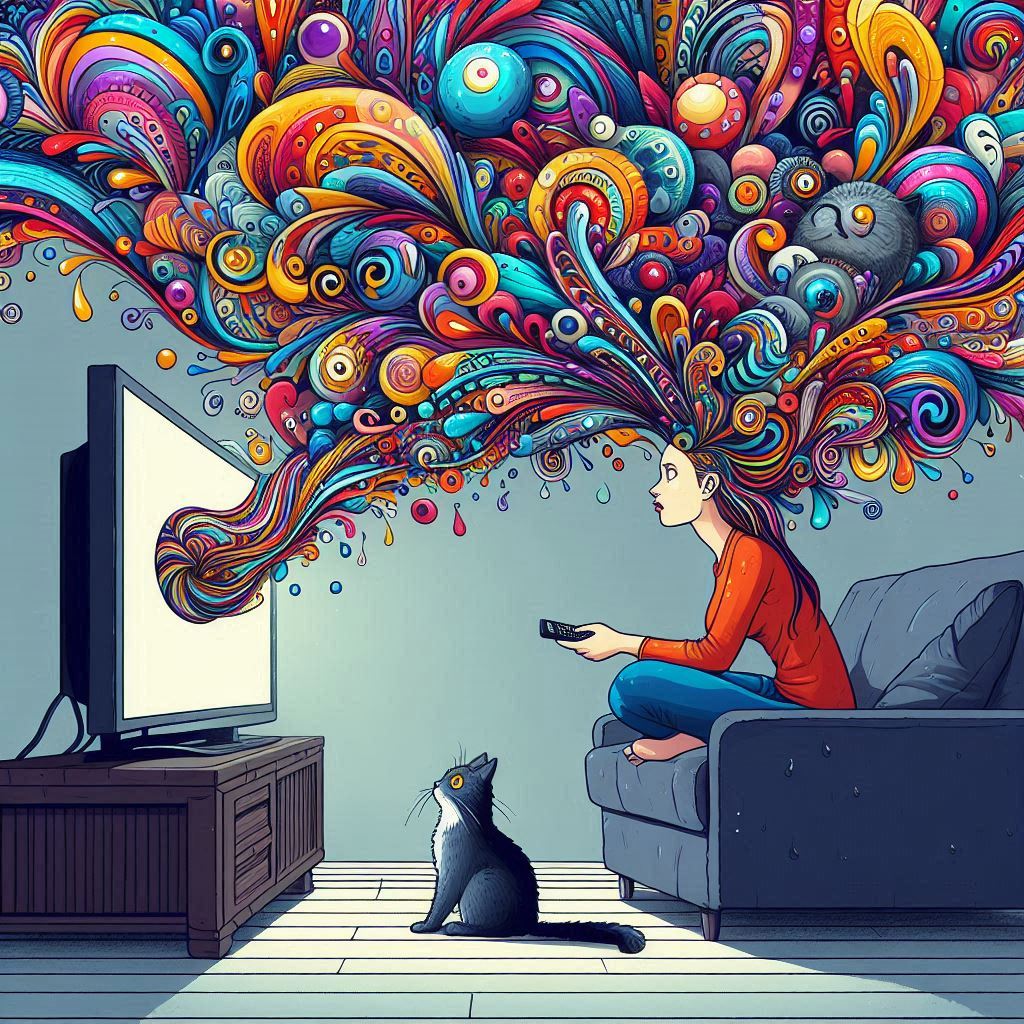In the digital age, the concept of mind manipulation has taken on new dimensions. With the advent of social media, television, games, and movies, our brains are constantly bombarded with information that shapes our perceptions and beliefs. This blog post delves into the intricate dance between media consumption and its impact on our minds, addressing the phenomena of fake news, conformity, and the neuroplasticity of the brain.
Fake News: A Modern-Day Trojan Horse

I think we all know what “fake news” is. After all, we deal with it every day. This deliberate spread of misinformation on digital and traditional media platforms is a modern-day Trojan horse. It sneaks in and infests our brains with lies and deceit, while pretending to be authentic. The danger lies not only in the spread of false information but also in the erosion of public trust in legitimate news sources. As we navigate this minefield, critical thinking becomes our best defense, enabling us to discern fact from fiction. This can be difficult when every lie is repeated relentlessly on almost every news source.
Conformity: The Subtle Art of Influence

We can go back to the Stone Age to discover why people have a tendency to conform. It was a matter of survival back then to follow the crowd. People who separated from the norm were likely to be eaten by a Sabertoothed Tiger while wandering around alone. This was a purposeful behavior back then, but in today’s society it seems to be something we choose to do. Conformity is another psychological phenomenon that is used by the media to influence people to join the crowd. Social media, with its ‘like’ and ‘share’ dynamics, often serves as an echo chamber, reinforcing our existing beliefs and nudging us towards the consensus, sometimes at the expense of individuality and critical analysis.
Neuroplasticity: The Brain’s Double-Edged Sword

Neuroplasticity refers to the brain’s ability to reorganize itself by forming new neural connections throughout life. This incredible adaptability allows us to learn from our experiences and make changes in our thinking. However, it also means that our brains can be ‘tuned’ by external stimuli, including media content. When exposed to negative or manipulative content, there’s a risk that our neural pathways can be ‘tuned into the dark,’ fostering harmful or distorted perceptions.
The media landscape is similar to a maze with paths that can lead to enlightenment or confusion. As consumers, we need to learn to move in the right direction, away from mind manipulation and towards the truth. Yes, it’s true that there can be positive aspects to cyber surfing. But, always keep in mind that you will have to do your own research to find the reality of the situation. Don’t take things at face value just because someone tries to convince you that their beliefs are the truth. By fostering media literacy and nurturing our neuroplasticity with diverse and positive content, we can steer our minds towards the light, rather than the dark.
Remember, the power lies within us to shape our media consumption and, by extension, the wiring of our brains. Let’s choose our influences wisely and remain ever curious and questioning in the face of the media’s siren songs.
Check out these posts for more enlightenment:

Leave a Reply